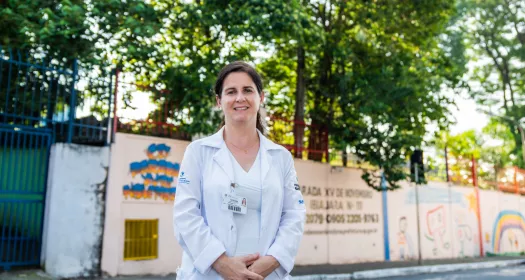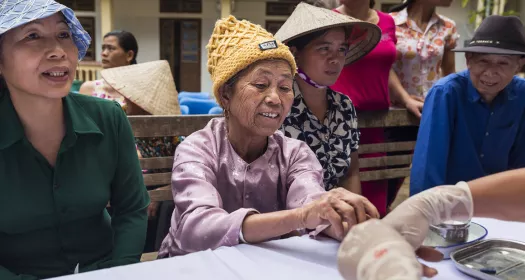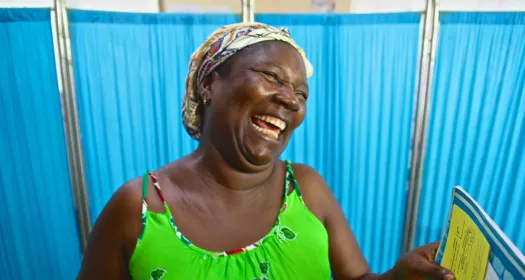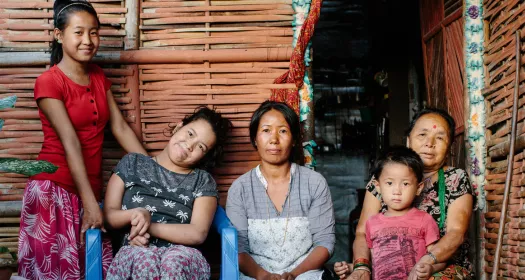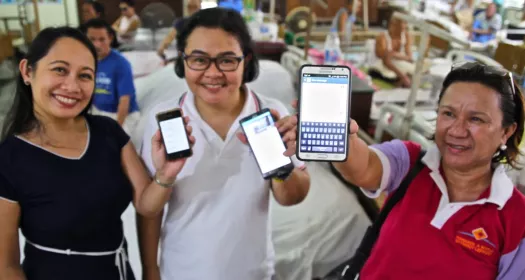The community-based hypertension management project (ComHIP) tested an innovative model for hypertension control and self-management in the Lower Manya Krobo municipality of Ghana.
In Ghana, one-third of adults have hypertension that is not under control. This is critical because hypertension is the leading risk factor for cardiovascular disease (CVD) – the most deadly non-communicable disease. CVD causes over 10 million deaths every year and disproportionally affects people living in low- and middle-income countries.
ComHIP brought hypertension services closer to the community – introducing blood pressure screening points in the places where people live, work and shop. It did this through diverse multi-sector partnerships, for example by enabling certain local shops to offer screening.
Digital technology played an essential role – connecting these new screening points with healthcare workers to provide diagnosis and ongoing care and supporting nurses’ decision-making. SMS reminders helped patients self-manage their condition.
Results included:
- Hypertension control rates for patients who were followed up for 12 months rose from 36% to 72%
- Patients who were followed up for 12 months experienced an average reduction in systolic blood pressure (SBP) of 12mmHg and 7mmHg in diastolic blood pressure (DBP)
ComHIP changed policy – the Ghana health authorities are working towards scaling the program to additional regions and integrating the ComHIP training curriculum and treatment guidelines into the national system. The evidence generated from the project demonstrates potential to save millions of lives if replicated in other countries and for other non-communicable diseases.
Partners
FHI 360, the Ghana Health Service, Ministry of Health, London School of Hygiene & Tropical Medicine, VOTO Mobile and licensed chemical sellers.
